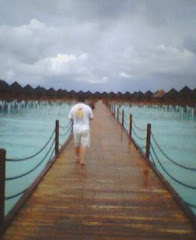The next point of interest I discovered while walking around Eifukucho was this temple that had stone statues of all twelve animals of the Chinese horoscope. The temple was Ryusenji.
永福町で次に発見したところが干支全部の石像があるお寺 ‐ 龍泉時。
Ryusenji (Main Temple) / 龍泉時本堂
The Bodhisattvas of the Chinese horoscope / 干支地蔵菩薩
My year - the rabbit / 僕の干支 ‐ 兎
My wife and brother's year - the rat / 嫁と兄の干支 ‐ 鼠
My sister's year - the tiger / 妹の干支 ‐ 虎
My mother's year - the cow / 母の干支 ‐ 丑
My father's year - the horse / 父の干支 ‐ 馬
Six Jizos / 六地蔵
After checking out Ryusenji, I returned to the Kanda River and walked further along its banks.
龍泉時を探索したあと、また神田川沿いの歩きを続いた。
Take a closer look at the middle of this picture and you will see something interesting.
上記の写真の真ん中もっとじっくり見て下さい。面白いものあり。
Still have a hard time seeing it?
まだ見えない?
I think he's looking for the river to return the frog.
“川は”って? 蛙を川に戻すつもりかね?
Look! There is that bird again / あっ、あの鳥また発見
Before making my walk home, I decided to check out one more point of interest - the Eifuku Inari Jinja.
家に帰る前にもう一ヶ所を探索することに決めた、それは永福稲荷神社。
Eifuku Inari Jinja / 永福稲荷神社
Tenjin-sha (shrine to scholarly studies) / 天神社 (学問の神)
Smaller shrines at Eifuku Inari Jinja / 永福稲荷神社にある他社の神
Shiratori-sha (shrine for good fortune) / 白鳥社 (開運・招福)
Tenou-sha (shrine to good health) / 天王社 (病気平癒)
Shirayama-sha or Hakusan-sha (shrine to love and other wishes) / 白山社 (諸々結び)
And so concludes my walk around Eifukucho.
これで永福町の散歩が終了。
Subscribe to:
Post Comments (Atom)



























.jpg)



No comments:
Post a Comment